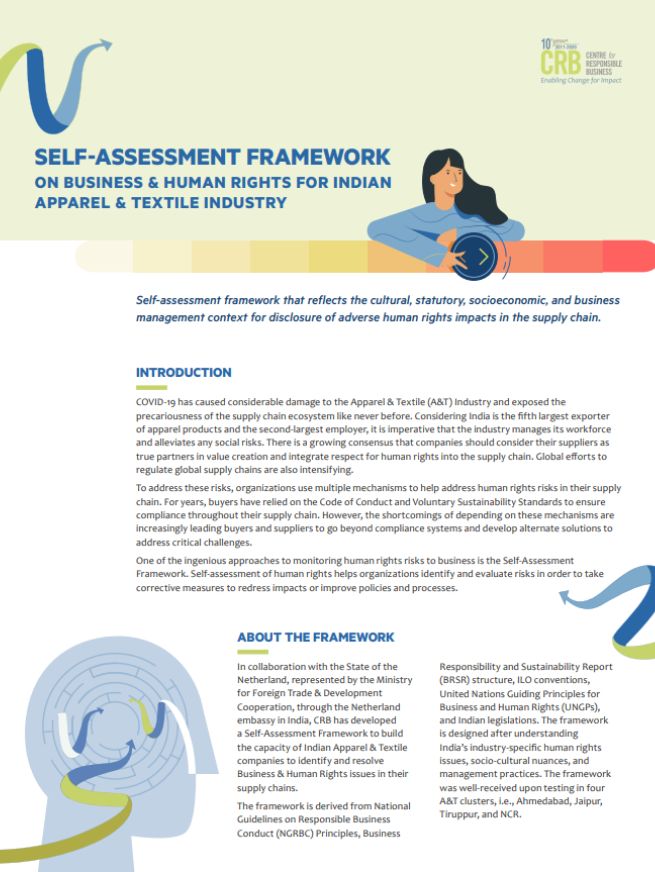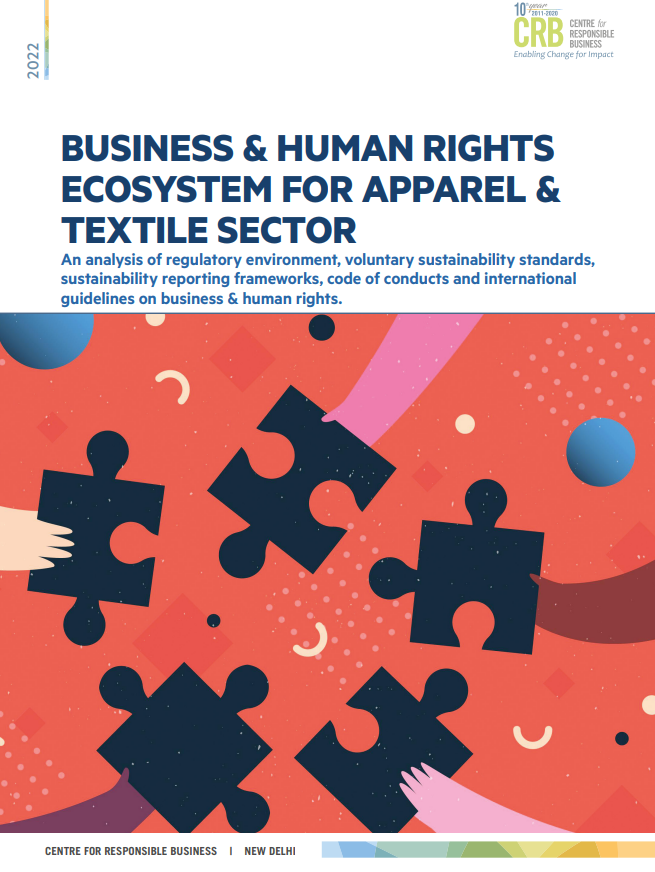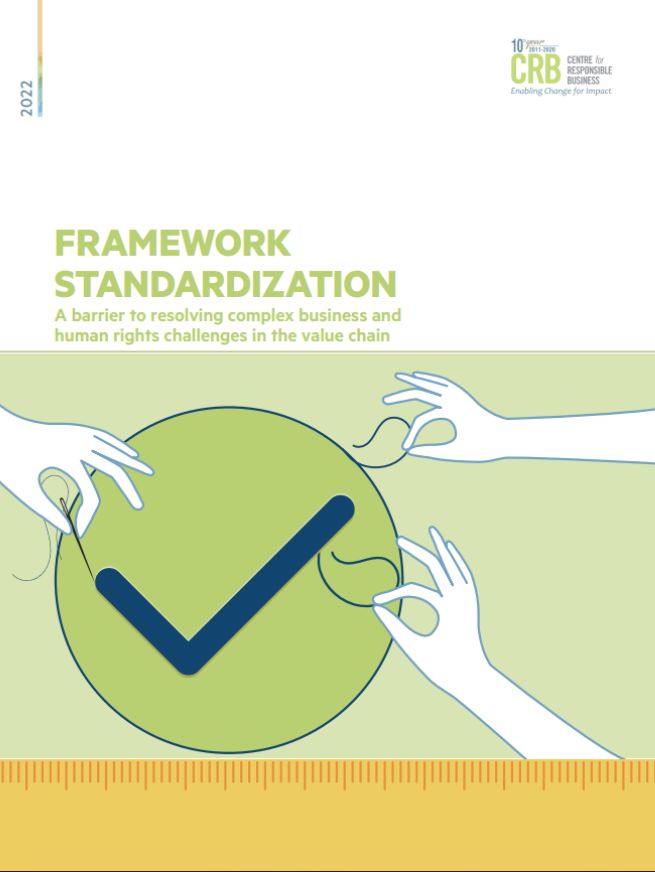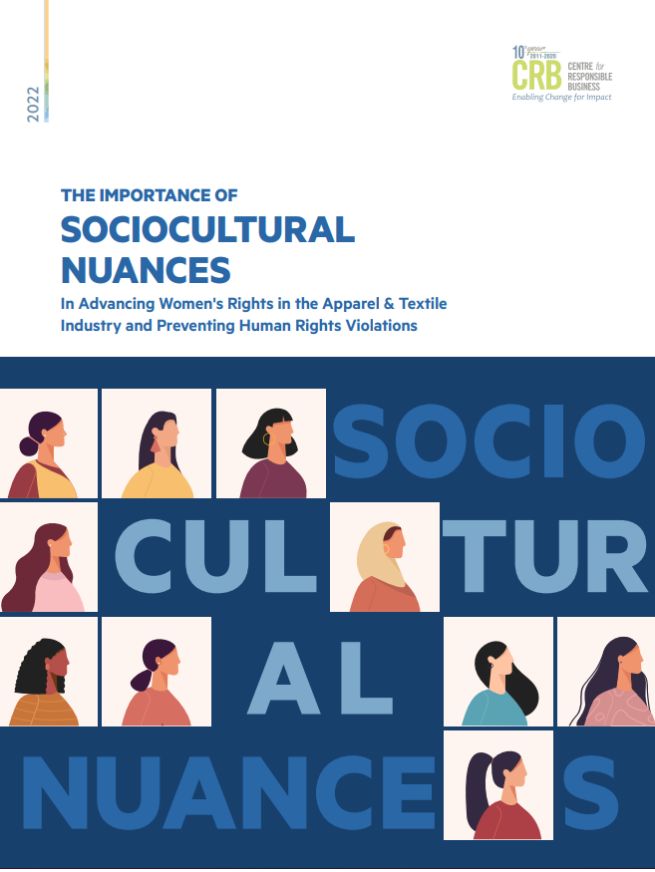





Our Solution
Self-Assessment Framework on Human Rights, specially designed for Indian A&T industry keeping in view the socio-cultural and management nuances of the region.
The Self-Assessment Framework will help you to:
- Assess human rights risk in your business with no involvement of third party
- Focus on women centric issues specially existing in India
- Measure your performance on SDGs and BRSR Principle 3,4,5.
- Take actions on high risks areas using the suggestive list of remedial actions
About the Project
Background
COVID-19 has caused considerable damage to the apparel & textile (A&T) ‘industry and exposed the precariousness of the supply chain ecosystem like never before. Considering India is the fifth largest exporter of apparel products and the second-largest employer, it is imperative that the industry manages its workforce and alleviates any social risks. There is a growing consensus that companies should consider their suppliers as true partners in value creation and integrate respect for human rights into the supply chain. Global efforts to regulate global supply chains are also intensifying.
To address these risks, organizations use multiple mechanisms to help address human rights risks in their supply chain. For years, buyers have relied on the Code of Conduct and Voluntary Sustainability Standards to ensure compliance throughout their supply chain. However, the shortcomings of depending on these mechanisms are increasingly leading buyers and suppliers to go beyond compliance systems and develop alternate solutions to address critical challenges.
One of the ingenious approaches to monitoring human rights risks to business is the Self-Assessment Framework. Self-assessment of human rights helps organizations identify and evaluate risks in order to take corrective measures to redress impacts or improve policies and processes.
About the Framework
In collaboration with the State of the Netherland, represented by the Ministry for Foreign Trade & Development Cooperation, through the Netherland embassy in India, CRB developed a Self-Assessment Framework to build the capacities of Indian Apparel & Textile companies to identify and resolve Business & Human Rights Issues in their supply chains.
The framework is derived from National Guidelines on Responsible Business Conduct (NGRBC) Principles, Business Responsibility and Sustainability Report (BRSR) structure, ILO conventions, United Nations Guiding Principles for Business and Human Rights (UNGPs), and Indian legislations. The framework is designed after understanding India’s industry-specific human rights issues, socio-cultural nuances, and management practices. The framework was well-received upon testing in four A&T clusters, i.e., Ahmedabad, Jaipur, Tiruppur, and NCR.
Insight









































































































